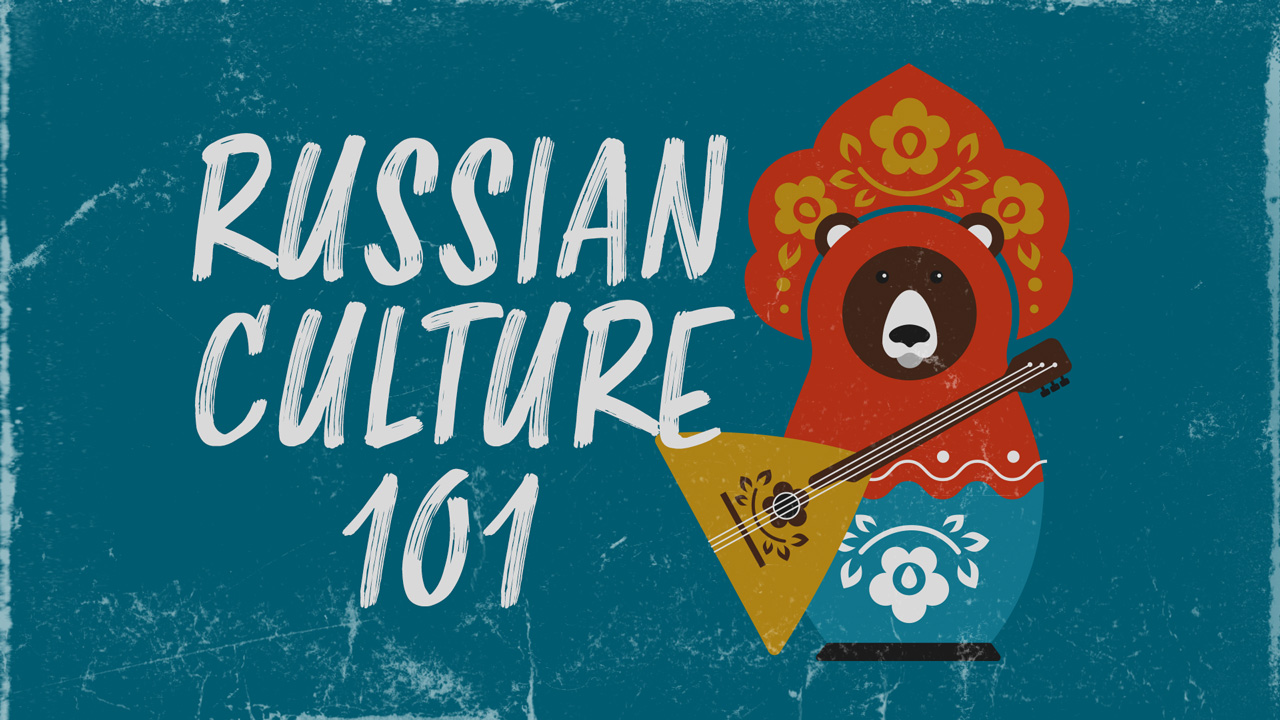22 Things I Learned about Russian Culture from 6 Years Living in Russia
After six years of living in Russia, I learned a lot about Russian culture.
Whether you’re learning Russian, planning to visit Russia, or just curious about the country, it’s good to know about the culture.
I want to give you an “insider’s view” of Russian culture, so this article is written from the perspective of a native English speaker who has spent years living in Russia after falling in love with the country.
I’m hoping that the details of Russian culture facts and Russian customs I share will open your eyes to the Russian way of life, and will help you fall in love with Russia, too.
Oh, and if you want to speak a little Russian, I’ll also share some useful phrases and vocabulary connected to each topic.
Let’s get started. Удачи (udachi), good luck!
What is Russia Like?
Probably the most famous observation on Russia by a foreigner remains former British Prime Minister Winston Churchill’s remark of Russia being “a riddle, wrapped in a mystery, inside an enigma”, but don’t let this put you off!
In reality, modern Russia has a lot in common with the West, and comes with an incredible level of personal hospitality should you start making Russian friends.
What is Russia Known for?
Russia has made some incredible contributions to the world, from Mendeleev’s Periodic Table of the Elements to Google co-founder Sergei Brin’s technical wizadry.
Further back in time, Russia was also the first country to put a man in space and has also contributed to world literature through greats such as Leo Tolstoy and Fyodor Dostoyevsky.
How Russian Names Work
Each Russian first name can have a large range of diminutive forms. Got a friend called Alexander? You may hear him referred to as Sasha, Sanya or even Sashenka in conversation. And if you’re talking to someone significantly older than you, or to someone in a position of authority (e.g. your boss) you may also hear their first name and patronymic used. Russian splits ‘you’ into formal and informal (ты [ty] with friends вы (vy)] with people you don’t know or need to respect).
Introductions: How to Greet People in Russian
For breaking the ice, the phrase давайте познакомимся (davayte poznakomimsya) or ‘let’s get to know each other’ will always come in useful. Men generally shake hands with other men on meeting, while men shaking hands with women is a little uncommon outside of business. For a few more introductory phrases, this article on 15 Ways to Say “Hello” in Russian will be well worth your time.
Do Russian People Speak English?
Compared to most European countries, English is not very widely spoken in Russia. That said, younger Russians are more likely to have a basic grasp of English.
Despite this, many English words have made it into modern Russian, from юзать (yuzat’, “to use’”) to бизнес ланч (biznes lanch, “business lunch”). If you’re at a loose end, try asking Здесь кто-нибудь говорит по-английски? (Zdes’ kto-nibud’ govorit po-angliyski?, “Does anyone here speak English?”)
House Rules in Russian Culture
When entering a Russian house, going barefoot is definitely a no-no. You’ll be provided with тапочки (tapochki) or slippers to change into. Bring a small gift for your host (a bottle of wine or dessert will do just fine).
If alcohol is offered, you may need to propose a toast. Try the following: Я желаю вам счастья/крепкого здоровья/любви! (Ya zhelayu vam shastya/krepkovo zdorov’ya/lybvi!, “I wish you happiness/excellent health/love!”) Stronger drinks are followed with закуски (zakuski), such as pickles, огурцы (ogurtsy). If you need to refuse a drink, the phrase “I don’t drink” – Я не пью алкоголь (Ya ne p’yu alkogol’) should come in handy.
Superstitions in Russian Culture
Don’t whistle indoors, as according to Russian traditions it’s a sure-fire way to lose money. If you’re unmarried, sitting at the corner of a table will mean you’ll stay single, and shaking hands through the front door, порог (porog) should be avoided due to bad luck.
Making Small Talk in Russian
You may get asked questions in Russia that seem a little invasive, such as:
- “Are you married?”: вы женаты (vy zhenaty?, asking a man) or вы замужем? (vy zamuzhem?, asking a woman)
- “Why not?”: Почему нет? (pochemu nyet?)
- “What’s your salary?”: Какая у вас зарплата? (kakaya u vas zarplata?)
Gender Roles in Russian Culture
Russian gender roles are generally more traditional and set in stone than those of other European countries, with women expected to marry and have children early and men expected to do most physical tasks.
Getting Around in Russian Cities
In Moscow, public transport is entirely card-based. In other cities, you’ll find a network of minibuses or маршрутки is often your quickest way to get around. They won’t stop at every point along the way, so you’ll need to get the attention of the driver with: Остановитесь пожалуйста! (Octanovites’ pozhaluista!, “please stop”) to get out. Men should be ready to give up their seat to the elderly or to women when on public transport. If things get a little crowded on the metro, you’ll often be asked: вы выходите на следующей? (vy vykhodite na sleduyushey?, “getting out at the next stop?”)
Long-distance Travel in Russia
If you need to travel to another city, a long-distance train or поезд (poezd) is on the cards. You’ll probably be the only foreigner on the train, so don’t be surprised if this generates a bit of interest! Other passengers are often quite talkative, and may even share food with you.
If you’re travelling overnight, remember to return your bed linen or постель (postel’) to the end of the carriage just before arrival. Each carriage has its own attendant, called the проводник (provodnik, male attendant) or проводница (provodnitsa, female attendant) who will take your tickets and manage any issues on the journey.

Russian Food Culture
When summer arrives, Russian parks are filled with the scent of шашлык (shashlyk, meat on a skewer). Many areas have public мангалы (mangaly) or barbeque grills available, so you can turn up with your own coal, invite your friends and get cooking.
When in a restaurant with friends, splitting the bill is standard, but if it’s a date, men should pay. Ask the waiter or waitress for the bill using the phrase счет пожалуйста (shot pozhaluista).
Russian Weddings – You Should Go!
If you ever get the chance to attend a Russian wedding, you’ll be in for an incredible day.
Truly the highlight of Russian celebrations, wedding festivities will usually start out at the ЗАГС (ZAGS), or registry office, take a tour around the city for photos at local landmarks and proceed to a restaurant for the afternoon/evening.
You’ll hear attendees chanting горько! (gorko!) spontaneously throughout the day, meaning ‘bitter’ which is a cue for the couple to kiss, supposedly to sweeten the atmosphere. It’s usually customary to give money to the couple as a gift.
Birthdays in Russian Culture
For close friends and family, it’s customary to give them a short phone call with your best wishes on their birthday. Try the following: Желаю тебе счастя/отличного здоровья/много денег (zhelayu teb’ya shastya/otlichnovo zdorov’ya/mnoga deneg, “I wish you happiness/excellent health/a lot of money”).
If you’re invited to a restaurant for a birthday, the host may well pay. Bring a gift for the person celebrating. Don’t forget to use the short phrase: c днем рождения! (s dnyom rozhdeniya!, “happy birthday!’”).
The Russian Sauna
If you get the chance to visit a Russian sauna or баня (banya), you’re in for a good time!
Public saunas will be separated into men’s and women’s sections, and the general expectation is that you’ll wear nothing but your birthday suit.
There will be a cold water pool that you can use to cool down in between steam sessions, and attendees hit each other lightly with веники (veniki, “birch branches”) to improve circulation. You can wish others a good steam session with the common phase: С легким паром (s lyokhkim parom)!
Russia’s Soviet Heritage
While Russia’s Soviet past is slowly slipping away, traces of the Советский Союз (Sovetskiy Soyuz) or Soviet Union can be seen everywhere you go in both statues and architectural styles. Older Russians are often fond of the Soviet times, and you’ll hear stories begin with: Во времена Советского Союза… (Vo vryemyena Sovyetskovo Soyuza…, “During the Soviet Union”).

Ice Skating in Russia
If you’re lucky enough to be out in winter, try your hand at ice skating. Outdoor rinks are common, and VDNKh (ВДНХ) in Moscow is home to Europe’s largest skating rink. You’ll be able to hire коньки (kon’ki) or skates if you don’t have your own.
Russian Beliefs and Faith
Russian belief is mostly founded on the Orthodox faith, with Islam and other faiths also represented. Russian cultural beliefs are also drawn from other sources such as superstitions, суеверия (sueveriya) and folklore.
Park Life in Russian Culture
If you live in a big city, where can you go to relax on the weekend? The park, of course!
The most famous of these has to be Gorky Park (Парк Горкого) where you can hire a bike, roller skate or just grab a coffee and set off for a stroll. Another popular outdoor space is the courtyard, or двор (dvor) next to most apartment blocks that are a hive of activity, often with a playground for kids and a few benches where residents sit and talk.
Russian Values
Russian culture today has a huge Western influence, with Russian lifestyle particularly among younger citizens having a similar iPhone-sporting and Instagram-snapping character to others their age worldwide. Yet a “family first” attitude still prevails, with sons and daughters often living with their parents until marriage, and sometimes afterward, as shown by the proverb Вся семья вместе, так и душа на месте (Vsya syem’ya vmyestye, tak i dusha na myeste, “When the family is together, the soul feels good”).
International Women’s Day is a Big Deal
While you may have heard of International Women’s Day, you may not have realised that it’s a pretty big day in Russia! If you’re a man, it’s time to pick up flowers for the women in your life! The male equivalent Defender of the Fatherland Day, on 23rd of February, is less celebrated, but still out there.
Literature and Russian Art
The Russian soul is often expressed through the country’s rich canon of literature. The best known are Tolstoy and Dostoyevsky. More modern writers worth checking out include Viktor Pelevin and Lyudmila Ulitskaya. The Tretyakov Gallery in Moscow is considered the home of Russian art and is well worth a visit.
I hope this article has furnished you with a few Russian facts to inspire your learning, and don’t forget to check out 50+ Incredible Russian Listening Resources to continue sharpening your Russian skills!



Social